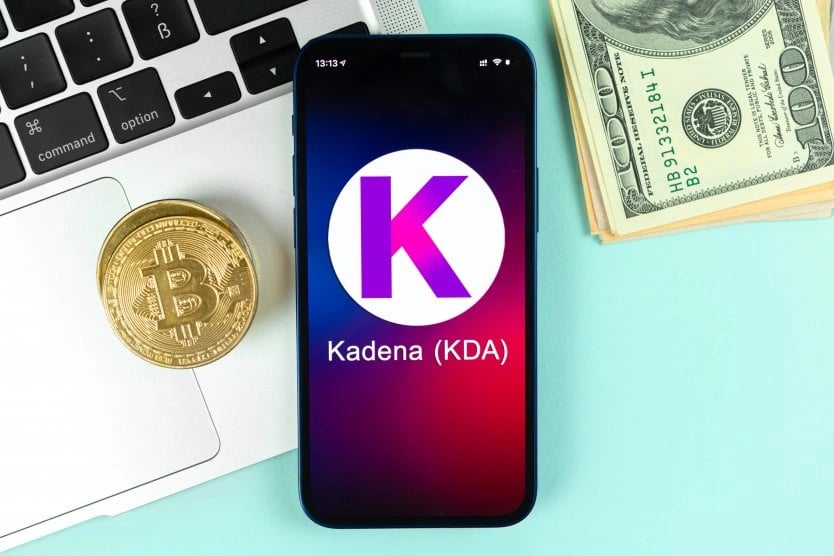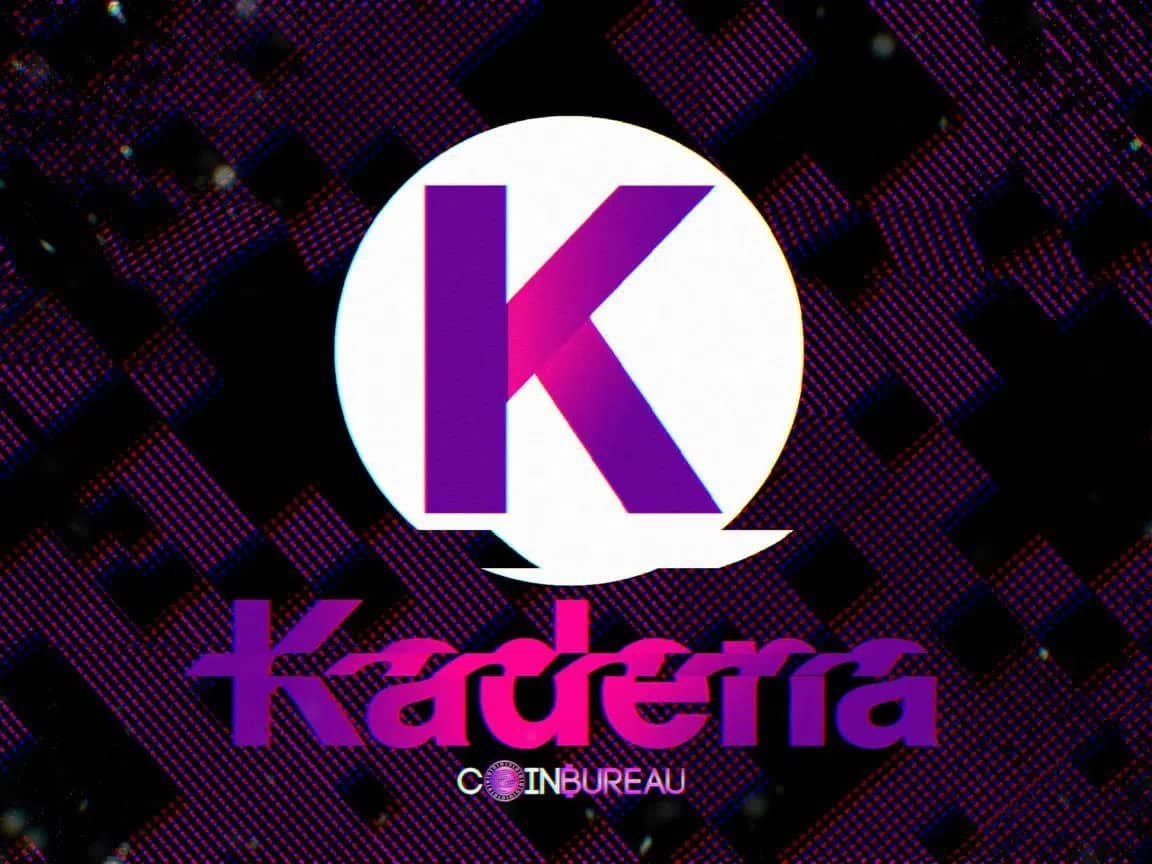위키 구독하기
Share wiki
Bookmark
Kadena
0%
Kadena
Kadena는 허가형 스마트 계약 플랫폼으로, 샤딩되고 확장 가능한 레이어 1 작업 증명 퍼블릭 네트워크를 특징으로 합니다. Kadena는 J.P. Morgan의 블록체인 센터 오브 엑설런스에서 나온 최초의 블록체인[3] 기술 회사입니다.
2020년 11월, Kadena는 DeFi 플랫폼 확장을 목표로 스테이블코인 제조업체 Terra와 파트너십을 맺었습니다. Kadena는 Terra의 루나 스테이블코인을 2021년에 탈중앙화 거래소(DEX)인 Kadenaswap에 추가할 것이라고 밝혔습니다.[1][2]
개요
Kadena는 J.P. Morgan의 블록체인 센터 오브 엑설런스에서 나온 최초의 블록체인 기술 회사입니다. Kadena는 Multicoin Capital과 Fidelity Investments 소유주의 벤처 부문이 참여한 2018년 자금 조달 라운드에서 1,500만 달러를 모금했습니다.

2019년 4월, Kadena는 Kadena 테스트넷에서 10,000개 이상의 블록을 통과했습니다. 또한 크로스 체인 상호 작용을 위한 통합된 신뢰 없는 SPV 증명에 대한 지원을 추가했습니다. 또한 Pact 스마트 계약 가드 및 기능에 대한 전체 공식 검증 범위를 발표했습니다.
5월 Consensus 기간 동안 Kadena는 대체 투자 분야의 선도적인 자산 관리자인 30억 달러 규모의 펀드 USCF와의 파트너십을 발표했습니다. Consensus에서 발표하는 것 외에도 Kadena 연구 및 네트워크 책임자인 Monica Quaintance는 같은 달 MIT Technology Review의 Business of Blockchain 컨퍼런스에서 연설했습니다.
2019년 6월 스톡홀름에서 열린 IEEE(Institute of Electrical and Electronics Engineers) 유럽 보안 및 개인 정보 보호 심포지엄에서 Kadena의 Monica Quaintance와 Gauntlet Networks 설립자 겸 CEO인 Tarun Chitra는 에이전트 기반 시뮬레이션을 사용하여 Kadena의 땋은 작업 증명 체인이 안전하게 확장됨을 검증한 동료 검토 연구를 발표했습니다. 제품 측면에서 회사는 SPV(Simple Payment Verification) 지원을 출시하고 모듈식 거버넌스 및 기타 기능으로 Pact를 버전 3.0으로 업데이트했습니다.
2019년 11월, Kadena 팀은 Kadena의 메인넷이 퍼블릭 마이닝에 완전히 액세스할 수 있게 되었다고 발표했습니다. 사람들은 또한 실시간 추적을 허용하는 도구인 Kadena의 블록 탐색기를 통해 병렬 체인의 마이닝을 볼 수 있습니다.
Kadena 네트워크는 작업 증명 및 Pact 스마트 계약 언어를 기반으로 구축되었습니다. 네트워크의 꾸준한 성장을 장려하기 위해 Kadena의 퍼블릭 블록체인은 Blake2s를 기본 해시 함수로 계속 사용하고 CPU 마이닝을 지원합니다.
2019년 11월, Kadena는 Polkadot에서 Pact 구현을 탐색하기 위해 Web3 Foundation과 계약을 체결했습니다. Kadena는 또한 상호 운용 가능한 블록체인 네트워크 Cosmos와의 협력을 발표했습니다. Kadena는 또한 AWS Marketplace 및 Azure Marketplace에서 Blockchain-as-a-Service 제품으로 엔터프라이즈급 솔루션을 제공하고 있습니다.
2019년 11월, Kadena 팀은 Kadena 퍼블릭 블록체인에서 코인 전송을 활성화한 Kadena 1.1의 릴리스 일정도 공유했습니다. 초기 릴리스 후 버전 1.0.5에서 1.1로의 전환은 2019년 12월 17일부터 3단계에 걸쳐 진행되었고, 그 후 전송 볼륨의 램프업 기간이 이어졌습니다.
2019년 12월, Kadena는 데이터 플랫폼 의료 공급망 제공업체인 Rymedi와의 전략적 파트너십을 발표했습니다. Kadena의 블록체인과 Rymedi의 통합은 불변의 공급 계보 및 다중 파트너 데이터 액세스를 제공하여 몽골 및 케냐와 같은 개발 도상국에서 제약 공급망 추적에서부터 가장 안전한 제품을 시장에 출시하려는 대마/CBD 재배자 및 추출자 지원에 이르기까지 기존 클라이언트 기능을 확장합니다.
12월에 Kadena는 광부가 획득한 토큰이 다른 사람(피어 투 피어)에게 전송 가능하게 되었다고 발표했습니다. 팀이 10월 30일에 커뮤니티에 마이닝을 발표한 이후 네트워크는 상당한 성장을 경험했습니다. 12월 17일 현재 10,000개 이상의 GPU에서 1,000,000개 이상의 블록이 마이닝된 것을 확인했습니다(평균 해시율은 10–15 TH/초 사이).
2020년 5월, Kadena는 Kadena의 확장 가능한 레이어 1 작업 증명 퍼블릭 블록체인에 Chainlink의 시장을 선도하는 탈중앙화 오라클 네트워크를 통합하기 위해 ChainLink와 협력하기 시작했습니다. 이는 오라클을 퍼블릭/프라이빗 하이브리드 블록체인 플랫폼에 배포하는 업계 최초입니다. Kadena 생태계의 기업과 기업가는 Chainlink 오라클을 활용하여 Chainlink의 대규모 사전 제작 입력 및 출력을 사용하여 엔드 투 엔드 Pact 스마트 계약을 만들 수 있습니다. Kadena 개발자는 시장 가격에 대한 가격 참조 계약을 구축하고 자격 증명이 있는 API 및 레거시 시스템에 대한 오프체인 액세스를 위해 외부 어댑터 기술을 활용하여 Chainlink의 고품질 데이터의 이점을 누릴 수 있습니다.[4]
2020년 6월, Kadena는 Coinbase의 Rosetta와 협력했습니다.
2020년 7월, Kadena는 Bittrex에 KDA 토큰을 처음으로 공식 상장했습니다. Bittrex Global의 초기 KDA 거래 쌍은 Bitcoin(BTC) 및 Tether(USDT)입니다.
2020년 11월, Kadena는 DeFi 플랫폼 확장을 목표로 스테이블코인 제조업체 Terra와 파트너십을 맺었습니다. Kadena는 9월 초에 발표되었고 연말에 출시될 예정인 탈중앙화 거래소(DEX)인 Kadenaswap에 Terra의 루나 스테이블코인을 추가할 것이라고 밝혔습니다. Kadena는 하이브리드 블록체인을 DeFi 제품의 판매 포인트로 사용하여 이더리움 기반 플랫폼의 혼잡에서 벗어나려는 기업과 사용자를 유치하기를 희망합니다. Kadenaswap을 통해 Terra 및 기타 코인을 한 네트워크에서 다른 네트워크로 이동하는 첫 번째 단계는 2021년에 진행됩니다. Kadenaswap 사용자는 미국 달러, 한국 원화 및 필리핀 페소와 같은 법정 통화로 뒷받침되는 Terra 스테이블코인의 이점을 누릴 수 있습니다.[5]
KDA 토큰
Kadena 경제의 코인 대부분은 네트워크가 기능 및 성장을 위해 탈중앙화 마이닝에 의존하기 때문에 마이닝 보상입니다. 광부는 블록의 유효성 검사/생산에 대한 블록 보상을 받습니다. 블록 보상은 플랫폼의 기본 암호화폐인 Kadena(KDA)로 제공됩니다. 광부는 스마트 계약 실행에 대한 거래 수수료 또는 가스 지불로 KDA를 받을 수도 있습니다. KDA의 최소 분수 단위는 컴퓨터 프로그래밍 개척자인 Grace Hopper의 이름을 딴 1조분의 1인
잘못된 내용이 있나요?
